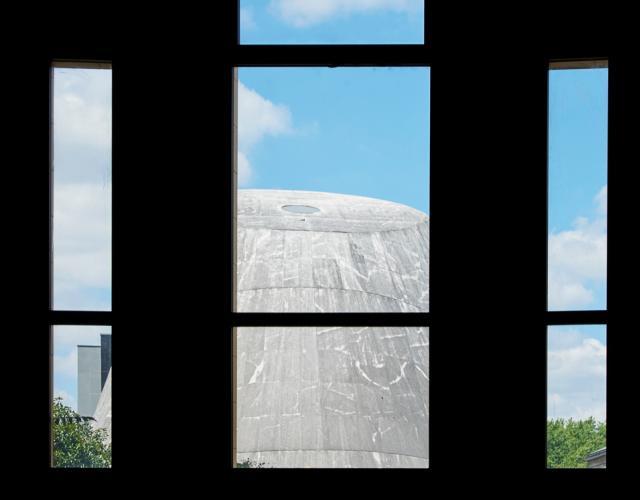
Organ improvisation - 2ème Cycle
Information
-
Name
Organ improvisation
-
Cycle
2nd Cycle
-
Course's number of years
2 years
-
Maximum duration
2 years
-
ECTS
120
-
Delivered diploma
Diplôme de2e cycle supérieur d'Improvisation au clavier confering the grade of Master
The grade of the2nd cycle diploma conferring the grade of Master is the grade obtained in the free recital of the second year of the2nd cycle.
-
Course objectives and content
The aims of this course are to :
- to give the instrumentalists concerned freedom of playing, a capacity for invention and a grasp of extremely varied styles ;
- to complement studies in writing, accompaniment, conducting and composition with creative instrumental practice.
The Diplôme de2e cycle supérieur d'Improvisation au clavier conferring the grade of Master is awarded to the student when he or she has obtained all of the following awards :
ECTS the organ improvisation prize 81 a certificate or attestation in each of the following specific disciplines - research methodology
3 - personal study work
9 - practical aspects of the profession 3
2 - practical aspects of the job 4
1 - introduction to teaching methods
4 - modern language
2 - work experience
6 an award (prize, certificate or attestation) in two of the following subjects : 12 - choreographic accompaniment
- piano accompaniment
- Gregorian choir conducting
- 20th and 21st century composition
- fugues and forms
- harmony
- keyboard harmonization B
- introduction to basso continuo
- introduction to generative improvisation
- introduction to modal improvisation/Indian music
- introduction to jazz
- chamber music
- 15th - 17th century polyphony
-
French language certificate
B2
-
Number of complementary disciplines to validate
0
Disciplines
Entrance exam
Keyboard improvisation - Organ (master's degree)
Opening date for registration : 10 October 2025
Closing date for registration : 14 November 2025
NO AUDITION IN 2026
Visa
Non-EU candidates must apply for a short-stay “competition” visa in order to take part in the entrance examinations. If successful, this visa will then allow you to apply for a student visa. You should not apply for a tourist visa. More information here
Required Diploma
This audition is open to candidates who hold, either:
- In France, a Diplôme National Supérieur Professionnel de Musicien (DNSPM)
- Abroad, an equivalent first-cycle diploma.
Candidates in their final year of undergraduate studies may also apply, provided they submit a certificate of enrollment specifying their current academic status at the time of registration. If admitted, they must present their completed diploma before the first enrollment.
French Language Level
Successful candidates who are not nationals of French-speaking countries must present:
- Upon first enrollment: a French language certificate (DELF or TCF) at level B1 or higher;
- Then, by the following December 10, a certificate at level B2 or higher.
Audition
Preselection
Based on examination by an internal jury of a dossier including:
- Copy of the required diploma
- Curriculum vitae
Admission
-
One work of the candidate’s choice from List A, set pieces announced December 10
-
One work of the candidate’s choice from List B, set pieces announced December 10
-
Harmonization at the keyboard of a chorale, followed by two variations
-
Improvisation of 5–8 minutes in a form and/or style imposed, chosen between two options
-
Improvisation of three short pieces, total duration approximately 5 minutes, on a single imposed element
-
Interview in French on the candidate’s motivations (approximately 15 minutes)
Students currently enrolled in organ curricula at the CNSMD of Paris or Lyon are exempt from no. 1 and 2.
No. 3, 4, and 5 are preceded by a 30-minute preparation period without an instrument.
Maximum age : 28
